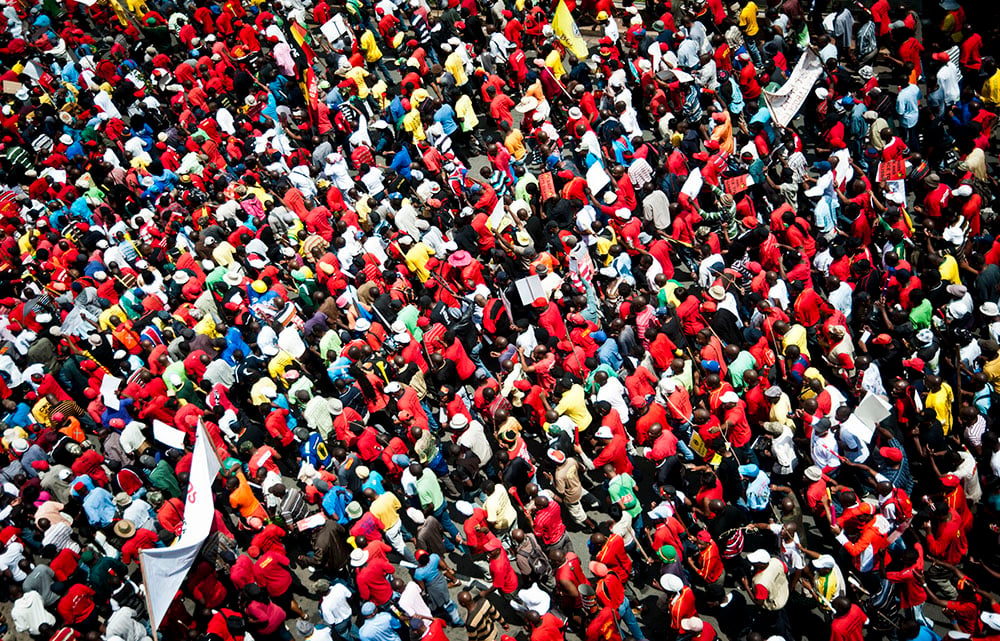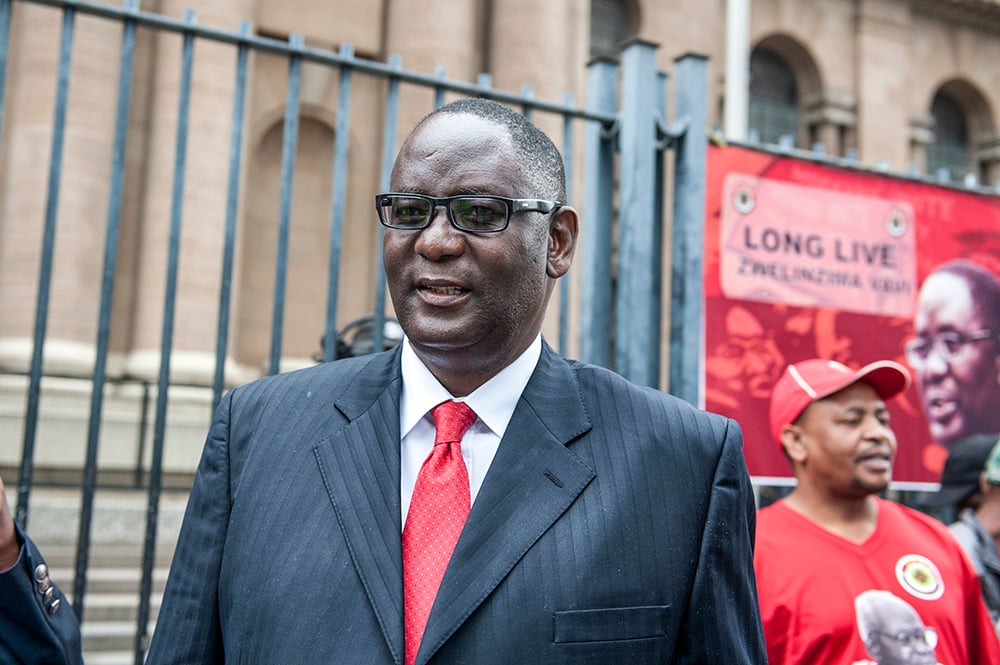Will a new trade union federation give workers the voice they have often missed over the past few years and make violent strikes less likely?
Little noticed amid the latest news of personality politics, the National Union of Metalworkers (Numsa), four Cosatu trade unions and its former general secretary Zwelinzima Vavi announced this week plans to form a new labour federation on May 1 after a worker summit in March. The new grouping will compete with Cosatu, the country’s biggest federation, for the same pool of members.
One reason for the ho-hum reaction may be that the new federation’s architects say it will not link up with a political party – if it tried, its unions and their members would not agree on who to support. If unions are not going to change our politics, the mainstream debate does not seem to care what they do. And so it ignores the possibility that the new federation could change many lives and boost the economy.
The background to the announcement is a three-year battle in Cosatu. On the surface, it was triggered by different attitudes to the ANC: Cosatu’s president, Sdumo Dlamini, is said to want closer links to the ANC leadership whereas Vavi, Numsa and their allies want to keep a distance.
In reality, the division centres more on attitudes to the South African Communist Party than the ANC – Dlamini and his allies are very close to the SACP leadership; their opponents are not. The official communists are the conservatives in this battle – their opponents want a more militant and radical union movement. But a less publicised, but perhaps more important, cause of division is what some unionists recognise as the greatest problem facing the movement – a large and growing gap between leaders and members.
In other countries and times, union leaders who have won rights from employers also became complacent and looked after themselves more than their members. But here the problem is worsened by the way in which union leaders (and politicians) have responded to the inequalities in our society.
When democracy arrived, the economy and society were controlled by an exclusive club to which only white people belonged. Since 1994, new members have been admitted – but the club still excludes most citizens.

The new union will compete with the Cosatu labour federation. (Madelene Cronjé)
Among its new members are many black political and labour leaders who now own shares and sit on company boards and live the same lifestyles as the employers with whom they negotiate. But their members – and millions of others – are excluded from these benefits: their problem is how to get by on pay packets squeezed by rising prices and the need to feed jobless dependants.
This is why some union leaders want to move closer to government. Cosatu’s membership has changed: most of its members once worked in privately owned factories and shops; today most work in the public sector. And though most were once blue-collar workers, the shift to public employees has meant that more are white-collar workers for whom keeping in with government can be not a political choice but a ticket to a better life.
The first effect of this gap between leaders and members is to deprive many working people of the organised muscle they need to be heard in the workplace. It is popular to trash unions as doomed relics of a bygone age – but working people would be defenceless without them. Not only would they be unable to defend their pay packets against inflation, they might also be sacked without reason and would be denied a say in the decisions that affect them at work. If unions are not operating as they should, working people lose the protections that enable them to live decent lives. They also lose their voice – without unions it is far more difficult for workers to be heard when national policy decisions affect them.
The second effect is that conflict between workers and employers becomes harder to manage and more violent. If unions are not representing workers as they should, what goes away is not worker grievances but the ability to settle them. Workers still find ways to be heard but the conflict is more damaging. Anyone who doubts this need only think back on Marikana.

Former Cosatu general secretary Zwelinzima Vavi. (Madelene Cronjé)
Over the past few years, the union movement has been severely weakened by the gap between leaders and workers. This has not made for more peaceful factories and shops – but workers’ demands have often not been negotiated effectively and both they and the economy have suffered.
The new federation offers the chance that this may change – not necessarily because Cosatu consists of complacent unionists who suck up to government and employers, or of selfless representatives of the workers but because it could give workers a choice they have not had before and so give them more power. If they can leave when their representatives ignore them, the leadership has a huge incentive to take them seriously.
In other countries at other times, the gap between union leaders and members was solved by a member revolt that forced leaders to listen or voted them out if they didn’t. Here, the revolts in Cosatu unions have been crushed; those who are unhappy have been silenced or driven out. A contest for members could give them the power to be heard because they can now join a rival union.
None of this is guaranteed. Union rivalry could make life difficult for workers – and everyone else – because it could trigger violence. People’s economic status is affected and so the stakes are high and it is more likely that force will be used. Violence has been a problem in union disputes over the past few years. Although it has been limited to relatively few incidents, heightened competition could trigger more tragedies.
Second, it is not clear whether the new federation has the muscle to give workers the choices they need. We don’t know how deep-rooted the malaise in the labour movement is – it could have affected the break-away unions enough to ensure that Cosatu remains in control in all but a few industries not because it is popular but because it faces no serious challenge.
Third, because Cosatu seems strongest in the public sector, and the new federation’s key unions will be in the private sector, it could fail to challenge Cosatu in the public sector but reduce it to a bit player in privately owned firms.
Workers may then have as little choice as they have now because one federation would dominate government, the other the private sector. (One exception may be the mines where the National Union of Mineworkers may continue to give Cosatu a strong foothold.)
Although it is not guaranteed that the new federation will revitalise unions, it could do this. And that could make a huge difference not only to thousands of working people but also to the economy. A union movement more in touch with its members may drive harder bargains. But it will be more likely to be able to settle differences at the bargaining table and then make agreements stick, which will reduce conflict and encourage growth.
The prospect of a new federation may not provide the spice to attract the mainstream’s attention, but it could be very important to the country’s future.